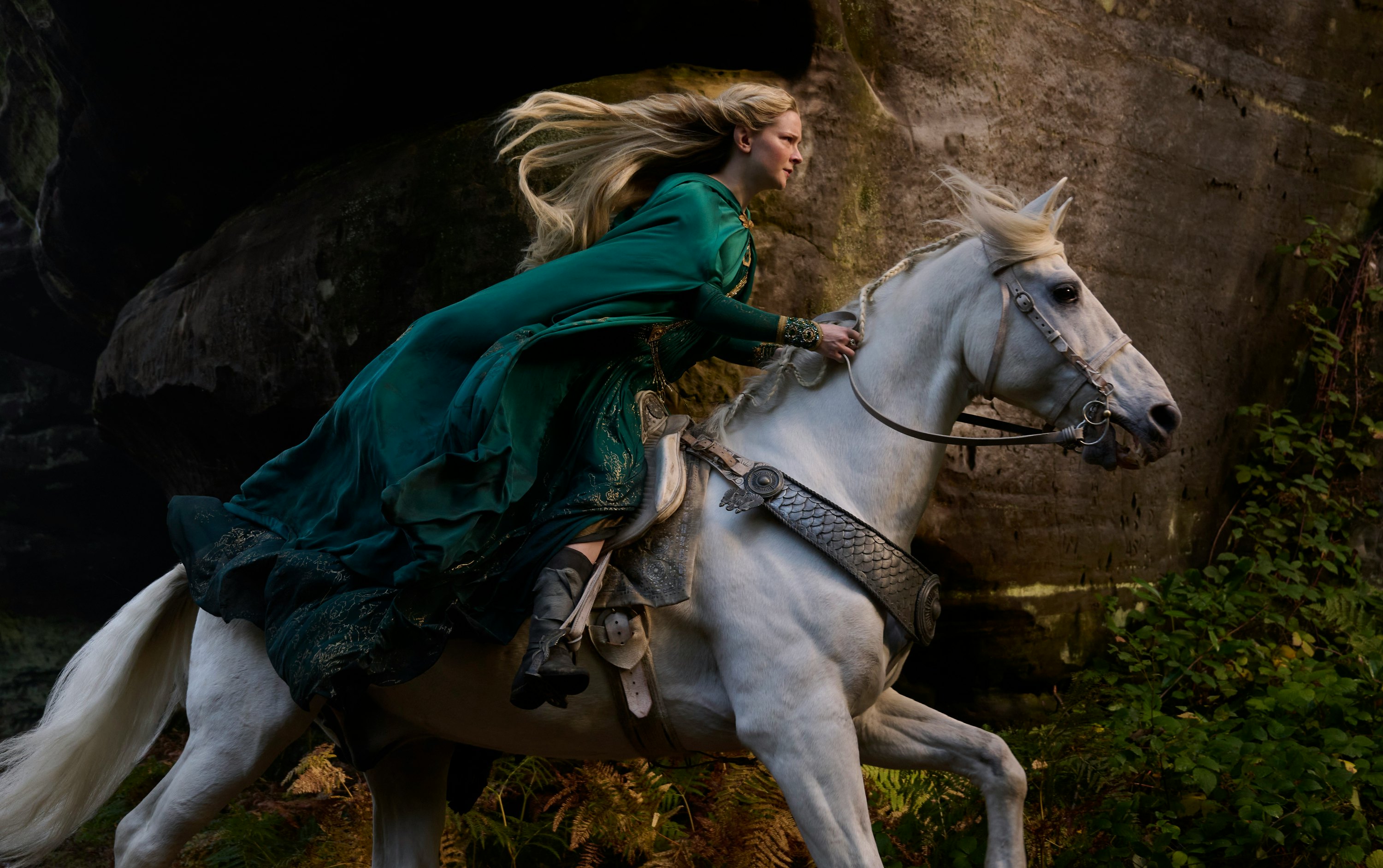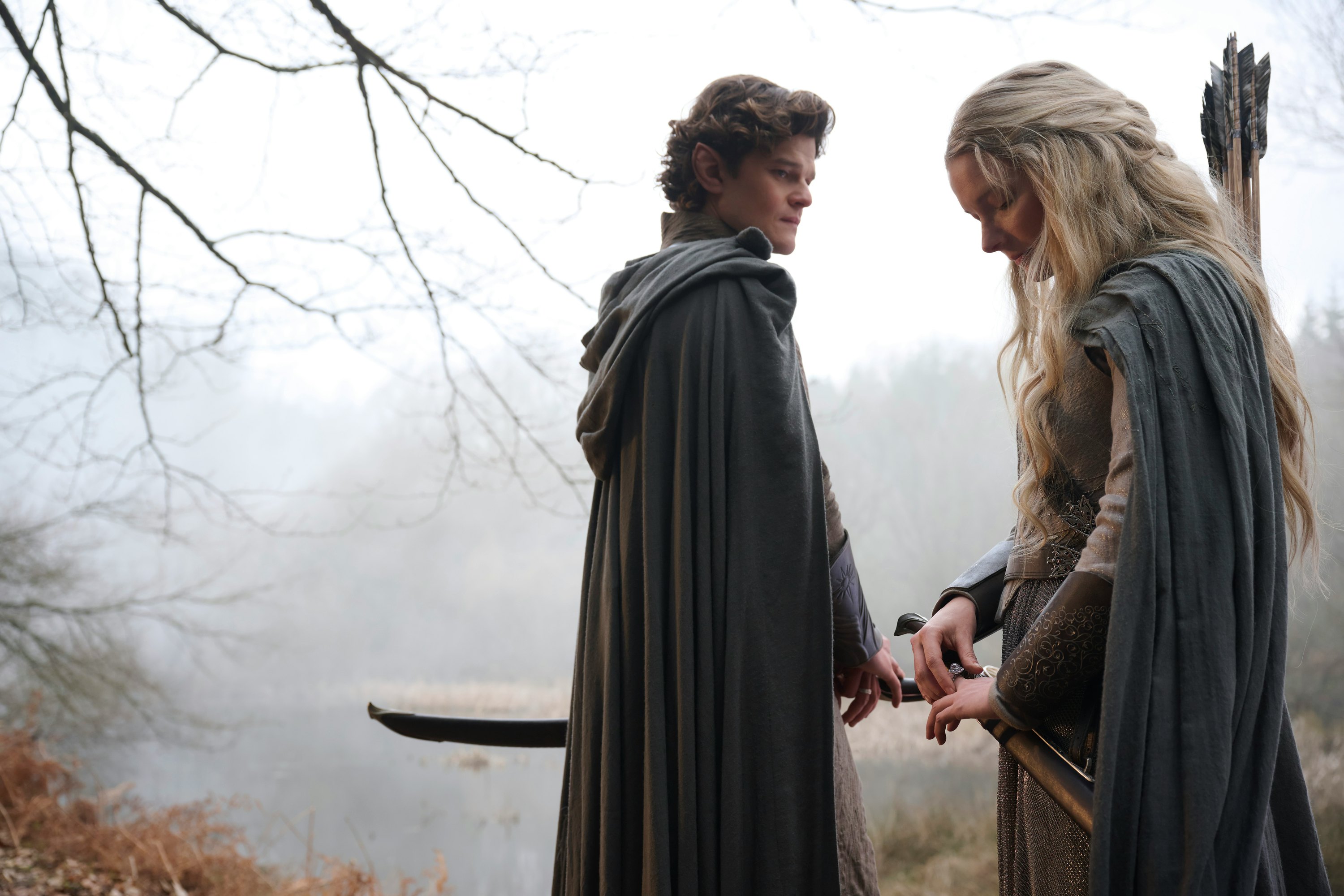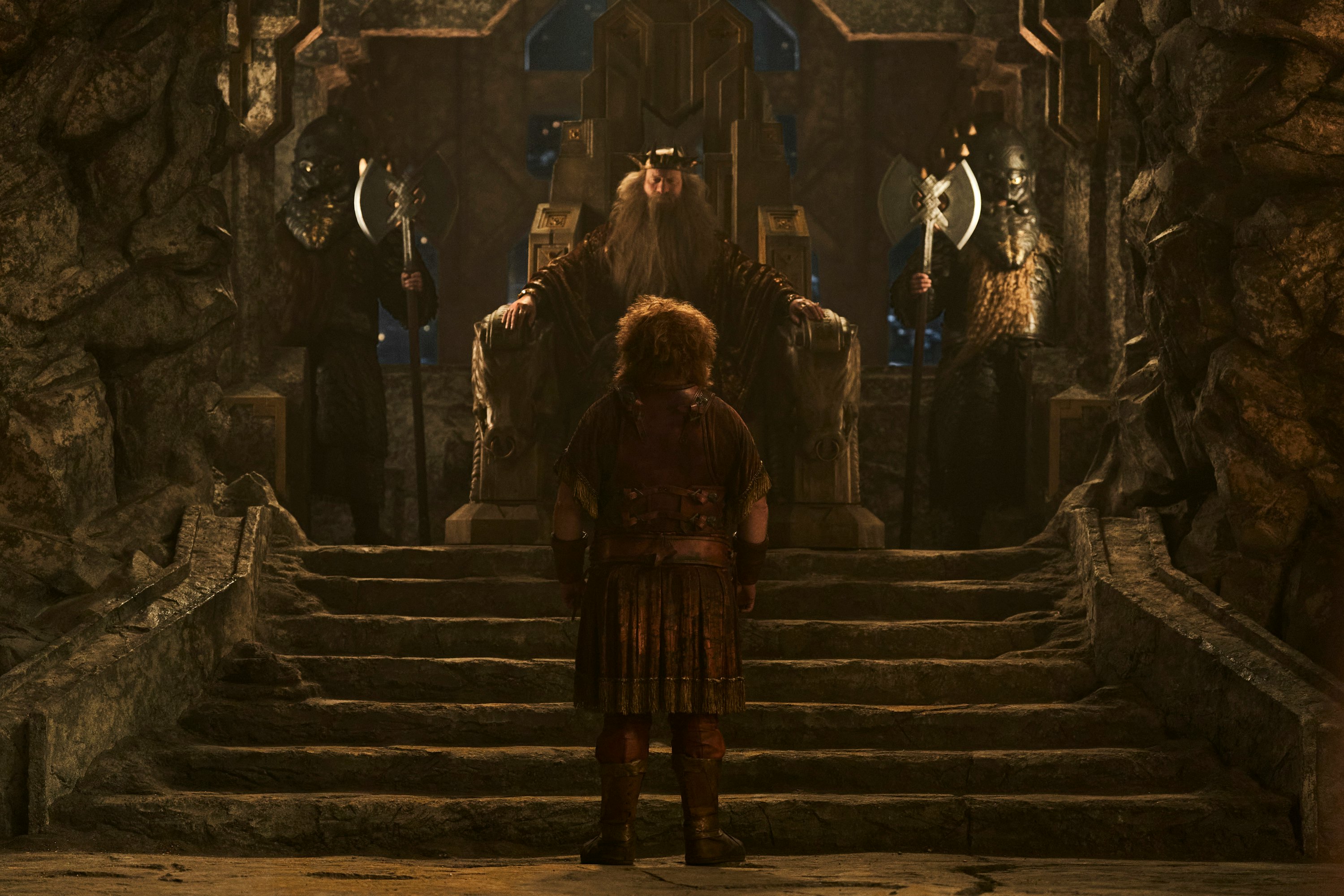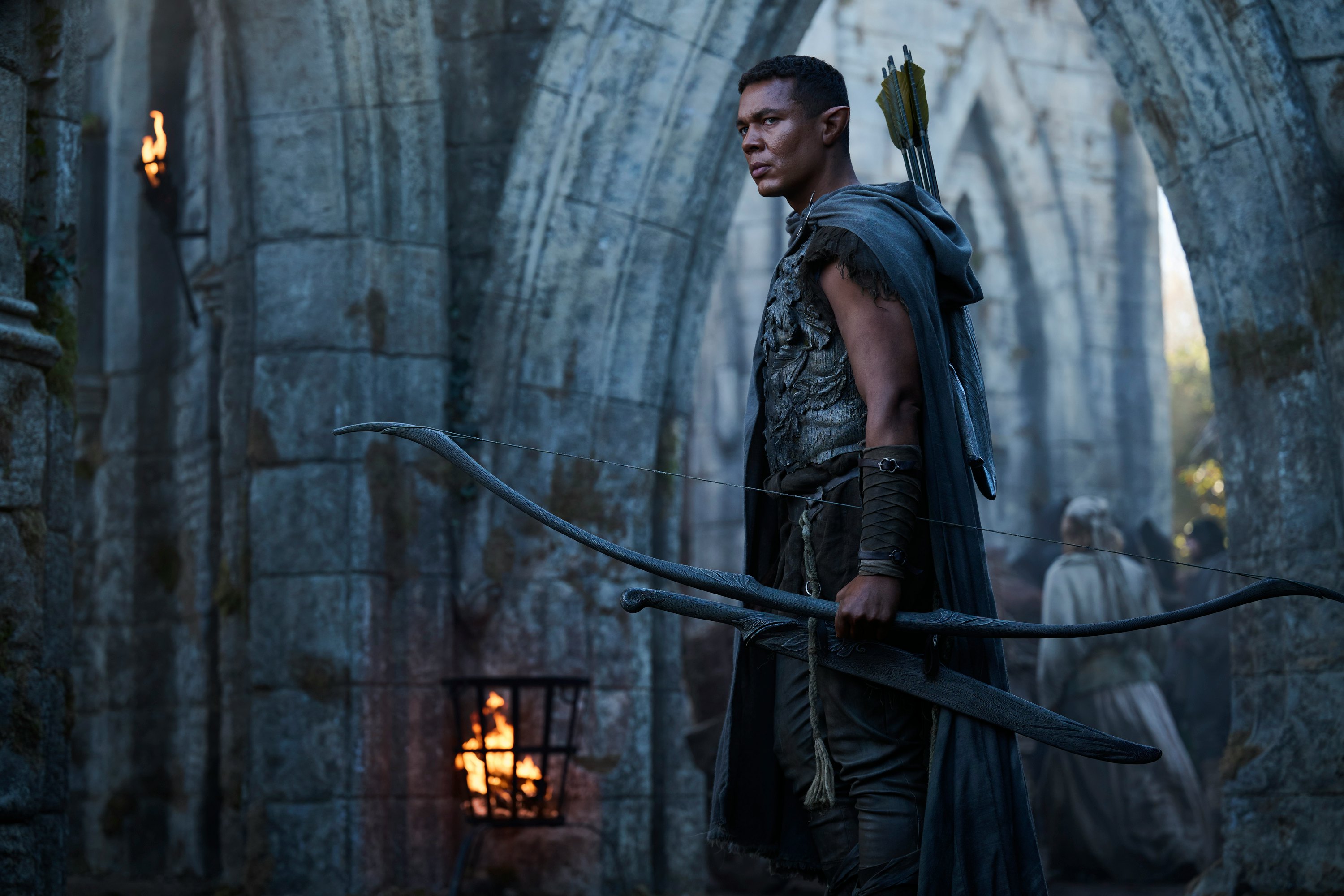
For all its big ideas, The Rings of Power’s first season felt more like a preamble — a promise of adventure to come, rather than a true starting point. The Lord of the Rings prequel worked hard to introduce a myriad of characters, setting the board for the arrival of the saga’s fabled Big Bad, Sauron. Its first eight episodes ran on the idea that the Dark Lord was hidden somewhere among our noble — if conflicted — heroes. And it wasn’t until the finale that Halbrand (Charlie Vickers), the resident charming rogue, came out as Sauron in disguise.
Following that bombshell, Season 2 hits the ground running to deliver what its first was missing: a true villain to root against. It also briefly reorients the series around Sauron’s twisted quest for total domination, framing him almost as a protagonist. We enter Sauron’s mind, come to understand his motives, and watch as his influence changes the very fabric of Middle-earth. That pitches the series in a delightfully dark direction; our disparate heroes are that much closer to uniting under a common goal. For all its promising developments, however, something may still be missing — and that nagging feeling does threaten to tear the series asunder just as it needs to find its footing.

The Rings of Power Season 2 is essentially Sauron’s show. It retraces the story from his perspective, following his first attempt to “heal” Middle-earth — and recruit an army in the form of Uruks — only to be betrayed by the original Orc himself, Adar (Sam Hazeldine, taking over for Joseph Mawle). The series flirts with some real eldritch horror here as it reveals Sauron’s true form, a festering mass of Venom-like goo. It’s not long before that goo becomes Halbrand, and later takes on a “fairer form” in order to conquer the realm anew.
As Annatar, the Lord of Gifts, Sauron reacquaints himself with Celebrimbor (Charles Edwards), the architect of the Rings of Power, in Eregion. There he begins the slow work of manipulating him into forging the rest of the rings: as the story goes, he’ll next forge rings for Dwarves, then Men, until finally crafting the One Ring that will bring them all to heel. Completing his task won’t come easily, though, especially with Galadriel (Morfydd Clark) striving to foil his plan once and for all. The legendary Elven warrior comes into Season 2 with a major sin to atone for: it was she who basically gave Sauron everything he needed to renew his task. While she works to rally her allies against the Dark Lord, she also has to work against their mistrust. Sauron already got into her head before; who’s to say he’s not still pulling the strings?
Sauron’s renewed focus allows the series to dig deeper into its best locale, Khazad-dûm. Not unlike the Elves in Season 1 — who struggled to restore the light of the Eldar — the Dwarven Prince Durin (Owain Arthur) and Princess Disa (Sophia Novemte) are dealing with a unique threat to their existence. Annatar will offer them a gift they can’t refuse, combining Elven and Dwarven magic to save the Dwarf kingdom. Of course, that magic will come at a price, culminating in an arc that, consciously or not, calls back to Peter Jackson’s Hobbit trilogy. Arthur and Novemte are scene-stealers as always — but the pair may be at their best when locking horns with Peter Mullan’s Durin III, who embraces the king’s slow corruption with assured finesse.

If The Rings of Power was focused solely on Sauron’s designs on one kingdom after the next, the show might have been perfect. But the scope of the series is just as sprawling in its second season, all for better... or worse.
Daniel Weyman’s strange, nameless wizard (who surely must be Gandalf, despite The Rings of Power’s dogged commitment to the mystery) wanders through the wilds of Rhûn in search of his destiny. The kingdom of Númenor, ruled by Men and hurtling towards its own doom, is caught in a battle between two political factions. Then there are those who survived the Battle of the Southlands (which became Mordor in Season 1) who now search desperately for a new home. Even Adar and his Orc “children” get the opportunity to become characters with desires and fears. Admittedly, it’s a lot to keep track of: it leaves no subplot behind, but the series tries its best to make it all flow smoothly.
Unlike Season 1 — which took a page from Game of Thrones and explored a bit of its many storylines in each episode — Season 2 makes a wise choice in focusing on a handful of characters per episode. That instinct gives the series’ strongest storylines some room to breathe, while others can tease promising new concepts. The Stranger’s arc is especially busy, as it’s tasked with introducing the enigmatic Tom Bombadil (a great Rory Kinnear) and the less-trustworthy “Dark Wizard” (Ciarán Hinds) as two potential mentors. However intriguing the conversations about Istari and destiny, though, it all feels more like a setup for a future season. As always, there’s a lot of potential here — but not all of it gets the chance to truly take root.

Frustrations aside, it’s hard to fault a series that tries so hard to get it right. The Rings of Power is the kind of series you want to live in, and its sweeping visuals and immersive score oblige whenever possible. If nothing else, it does look the part — and any narrative blind spots are just as easily filled by a cast that leans wholeheartedly into the material. It manifests a story that, while muddled on occasion, is buoyed by so many earnest performances.
Though the series goes to some very dark places in Season 2, it always circles back to hope. That makes it impossible to root against, especially when its most compelling threads pay off in rousing battles or quiet, intimate scenes. In the end, though, there’s still plenty to love: whatever flaws the series has, its blind ambition can be forgiven. The Rings of Power is still a great fantasy series, and if it has time to mature, it could be even greater.







